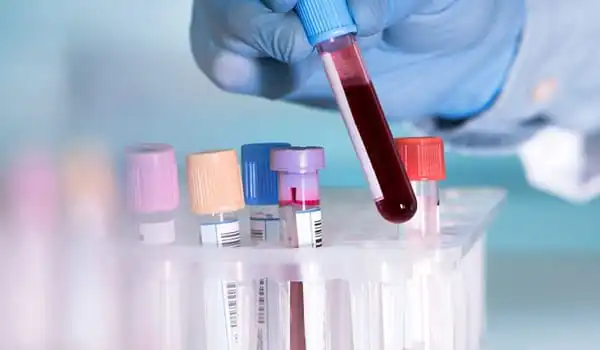A biopsy is the only way to definitively diagnose prostate cancer. Other screening tests, such as a digital rectal exam (DRE) and a free prostate-specific antigen (PSA) test, can be used to rule out prostate cancer and eliminate the need for a biopsy. According to a validation study that included more than 1,500 patients, a urine test could have avoided one-third of unnecessary prostate cancer biopsies while missing only a small number of cancers.
According to a validation study involving more than 1,500 patients, a urine test based on research from the University of Michigan Rogel Cancer Center could have saved one-third of unnecessary prostate cancer biopsies while missing only a small number of cancers. The findings appear in the issue of the Journal of Urology.
LynxDX, a U-M startup company, is commercializing the MyProstateScore test, which measures levels of cancer-specific genes in a patient’s urine. It is based on research from the University of Michigan that discovered that half of all prostate tumors have a genetic anomaly in which the genes TMPRSS2 and ERG relocate on a chromosome and fuse together, creating an on-switch for prostate cancer development.
Our ultimate goal was to see if the MyProstateScore test could be a practical, reliable test that could rule out the need for more expensive or invasive testing in men referred for a prostate biopsy.
Jeffrey Tosoian
A blood test for prostate-specific antigen, also known as the PSA test, is currently one of the best methods available to doctors for detecting prostate cancer. Although elevated PSA levels may indicate cancer, the vast majority of men with elevated PSA levels do not have prostate cancer.
Men with an elevated PSA test are subjected to an invasive procedure known as a transrectal biopsy to determine who has cancer and who does not. Patients are irritated by prostate biopsies, and there is a small risk of complications. MRI scans are also used to detect prostate cancer, but they can miss cancerous lesions and are much more expensive and difficult to obtain.
“Our ultimate goal was to see if the MyProstateScore test could be a practical, reliable test that could rule out the need for more expensive or invasive testing in men referred for a prostate biopsy,” says study lead author Jeffrey Tosoian, M.D., M.P.H., a clinical lecturer in urology at Michigan Medicine.
Tosoian and two of his co-authors were founders of LynxDX and hold an equity stake in the company.

Not all prostate cancers are the same level of concern. Many appear later in life and grow so slowly that the best course of action is simply to keep an eye on them. Patients with slow-growing cancers or no cancer, despite elevated PSA levels, could be spared from more invasive or expensive procedures, according to the researchers.
Patients seen at academic health centers and community health settings were included in the validation study. Among the 1,525 patients, 338 (22%) had cancers detected on biopsy that were group grade 2 or higher, indicating that they were serious enough to require immediate treatment.
The study discovered that if the MyProstateScore test had been available to patients in the study, 387 biopsies that revealed no cancer or slow-growing cancer could have been avoided. Meanwhile, the test would have missed only ten clinically significant cancers that required immediate treatment.
“The data show that this simple, secondary testing approach could reduce the use of more expensive and invasive procedures after a PSA test,” Tosoian says.
The prostate-specific antigen (PSA) test is a common prostate cancer screening test. PSA is a protein produced by the prostate gland. The PSA level in your blood is measured by the test. It’s a simple blood test, but for some men, it’s a lifesaver.
However, its utility as a diagnostic tool is fairly limited. High PSA levels may be a sign of prostate cancer, but they are insufficient to definitively diagnose the disease. This is due to the fact that your PSA levels could be elevated for a variety of reasons, including urinary tract infection and prostate inflammation.














